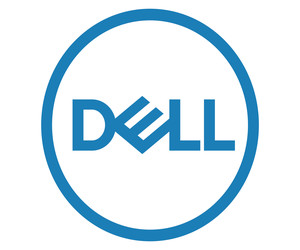Multicloud is now mainstream, with 98 percent of enterprises using public cloud options as part of a multicloud provider strategy.
This makes sense: Multicloud solutions make it possible for companies to sidestep issues with generic cloud offerings and instead build IT environments that are tailored to their business needs.
One expanding area of multicloud adoption is storage. By leveraging a combination of public, private and onsite storage solutions, organizations can better balance access, security and regulatory requirements. BizTech spoke with Avishek Kumar, director of product management for storage at Dell, about the evolving role and effective implementation of multicloud storage in business operations.
RELATED: Find out how Dell and CDW can support your multicloud goals.
BIZTECH: What do businesses need to know about multicloud storage?
KUMAR: Multicloud storage for customers consists of any combination of public and private clouds, either on-premises or in a colocation facility.
The reasons for choosing multicloud storage differ. Some customers want to avoid vendor lock-in, while others might have stringent regulatory guidance about where data can be stored at different periods of time. Some customers simply want more options and flexibility.
Whatever the reason, multicloud storage is here to stay.
Click the banner below to find out why the future of business is in multi and hybrid clouds.
BIZTECH: What are some obstacles to success with a multicloud storage strategy?
KUMAR: Many organizations are transitioning quickly to public cloud deployments to increase agility, accelerate deployment time and improve overall time to value.
In the case of public cloud block storage, however, many workloads have not been considered viable candidates for running in the public cloud due to performance, scale and resiliency limitations. In addition, capacity charges associated with meeting application requirements and difficulty with data mobility make the move to public cloud storage more challenging.
BIZTECH: How does Dell Technologies help address these challenges?
KUMAR: Dell APEX Storage for Public Cloud brings industry-leading, enterprise-class file, block, and protection software to public clouds. The Dell APEX Block Storage for Public Cloud delivers the proven capabilities of on-premises block storage in the public cloud so that customers can run a wide range of block-based workloads without the traditional limitations and risks of the public cloud.
There are core benefits of multicloud storage such as:
- Improved total cost of ownership and optimized costs with value-added data services and capabilities such as thin provisioning, snapshots and replication
- Seamless data mobility that moves data from ground to cloud and cloud to ground, as well as across regions, for additional data protection; with this approach, customers are not locked in, and they can bring in data to any location based on need.
- A unique ability to efficiently spread the data across three or more availability zones using APEX Block Storage for Public Cloud, ensuring data access without having extra copies of data or needing to use replication across AZs.
- Efficient consolidation that enables customers to take their disparate cloud resources and workloads and unify them onto a single platform, eliminating the underutilized capacity and wasted performance created by those previous silos.
EXPLORE: Find out how multicloud solutions and services can help your business.
BIZTECH: What workloads might be a good fit for multicloud storage?
KUMAR: We touched on the linear scalability, extreme performance, high availability, and enterprise-grade data services that the APEX Block Storage brings to the public cloud.
This allows companies to migrate workloads such as:
- Databases that require high availability and high transactional performance
- Big Data analytics with linear scalability and the capacity to support it
- Resource-intensive development and testing environments
- Virtualized workloads running at peak performance
- Easily portable container environments with predictable persistent storage
BIZTECH: What’s on the horizon for Dell and multicloud storage?
KUMAR: Later this year, we’ll be launching Dell APEX Navigator, which provides simple, secure storage software deployment in the public cloud and enables management of storage resources across on-premises and in the public cloud.
APEX Navigator for Multicloud Storage will support APEX Block Storage for AWS later this year, and the same support for Microsoft Azure will be available in a future release.
Sponsored by:














